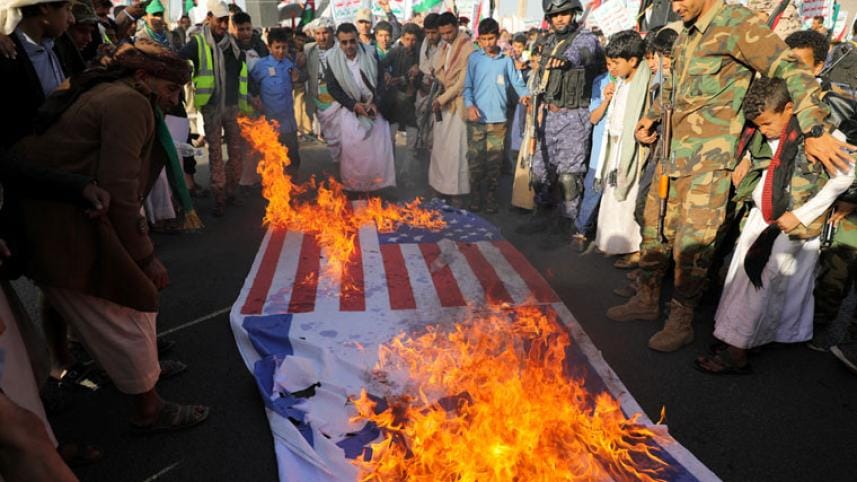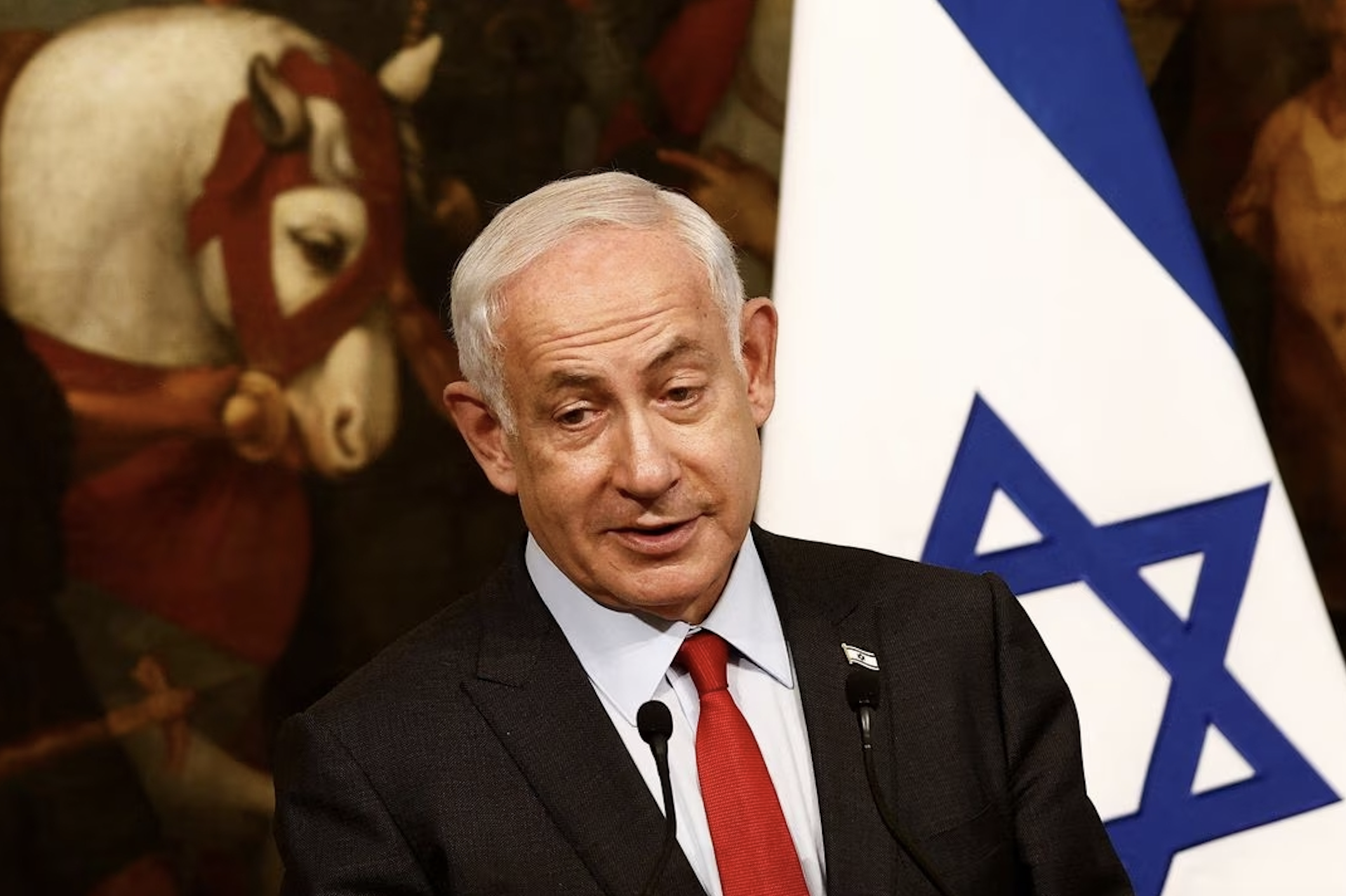Geopolitical implications of the brewing tension in the Red Sea

The war between Hamas and Israel, which started with the indiscriminate killing and abduction of Israeli settlers near the Gaza Strip, drew a disproportionate and brutal Israeli response that has seen over 25,000 civilian casualties, including women, children and old. The war has polarised global leaders and public opinion on a host of issues, such as the justification for the perpetrated brutality by Israel on the grounds of self-defence, antisemitism, the viability of the two-state solution and the Palestinian statehood. Many of the Arab countries who were warming up to Israel have already paused their fragile reset of relationship with Tel Aviv as they do not wish to be seen as complicit with Israel's ongoing war effort in Gaza. At least publicly, Arab countries like Saudi Arabia, UAE, Qatar, Bahrain and Jordan, which are hosting US military bases, refused to provide permits to the US forces in aid of Israel's offensive in Gaza. Moreover, for the sake of keeping the Abraham Accords alive, these Arab States needed a ceasefire that would put an end to the brutalities. Given the domestic context, if the war lingers, leaders of these Arab states will find it increasingly difficult to continue or pursue further relations with Israel.
More importantly, the geopolitical ripples of the Gaza war have been evident in the Red Sea since the Houthis are already creating havoc in the Red Sea area in support of the Palestinian cause by attacking merchant ships with ballistic missiles, drones and rockets. These attacks are taking place near Bab el-Mandeb Strait, a strategic trade choke point leading into the Red Sea and further on to the Suez Canal. The leverage Tehran has over the Houthis should not be overestimated. However, Washington holds that Iran has "deep involvement" in these Houthi attacks in the Red Sea. To protect this sea lane in the Red Sea and the Gulf of Aden, which is used for 12 percent of global maritime oil and 08 percent of LNG trade, mostly headed towards Europe, the US has formed a coalition of 20 countries and deployed aircraft carriers and conducted strikes. Unlike in 2019, Saudi Arabia and UAE have abstained from joining the coalition, which manifests a lack of appetite for these regimes to engage in a regional conflict that may not bode well for their image to their respective domestic audience.
The American and British forces carried out strikes on at least 60 Houthi targets in Yemen. However, if the Houthis can continue with their cheap barrages of rockets, drones and anti-ship missiles on this trading route, the US-led coalition's response will become untenable due to their expensive naval missiles and fighter jets.
To avert the attack, ships are now rerouting through the southern tip of Africa, which increased the lead time for the travel by nine days and the cost by a minimum of 15 per cent. Global leaders in the shipping liners industry, such as A.P. Møller-Mærsk, have joined the procession of withdrawals from the Red Sea route along with Qatar Energy, Qatar's state energy company, one of the biggest LNG exporters in the world. If such rerouting continues, this will have $200 billion in trade diversion through the Suez and put the global chain in utter chaos. Given the ongoing global economic slowdown due to the COVID-19 pandemic and the prevailing Russia-Ukraine War, another geopolitical upheaval surrounding the Hamas-Israel war will have severe economic consequences as it tries to rebound. The US has built its Indo-Pacific narrative surrounding the protection of navigation through a "free and open Indo-Pacific." Hence, protecting the global supply chain and transporting energy and goods from and through the Middle East might become the great power's burden in an escalated regional conflict scenario.
Furthermore, Hamas's attack on Israel destabilised the status quo in the Middle East, which was carefully crafted over the last 4 years with the signing of the Abraham Accords. The end game was eliminating the Palestinian cause as a precondition for Israel's recognition and normalisation of Tel Aviv's relationship with the Muslim-majority Arab nations. In US foreign policy in the Middle East, both during the Trump Administration and the current Biden Administration, the normalisation of the Arab-Israel relationship continued to receive centrality in Washington's strategic vision. So much so that incentives were offered to the Arab countries in exchange for their policy change regarding Tel Aviv. For example, the UAE was offered US-built advanced multirole F-35 fighter aircraft, whereas the US was the first to recognise Morocco's annexation of Western Sahara. Sudan received $1.5 billion in loans from the US and cleared its name from Washington's list of designated terrorist states.
If not for this conflict, such a pact would enable Israel to put a lid on its apartheid and oppression of 6 million Palestinians, while the international community would get bogged down elsewhere due to their selective dementia. However, the recently erupted war in Gaza put a pause on such a scenario and effectively halted the normalisation of the relationship between Saudi Arabia and Israel. Most significantly, this might bring the US back to the Middle East. Washington wanted to leave this region for good in order to shift its strategic focus and resources to the Indo-Pacific, where its current adversary, China, plays a crucial role. However, given the strong Israeli lobby within the US foreign policy circle, it will prove difficult for US policymakers to withdraw their strategic attention from the Middle East. The situation also begs the question: will the US move beyond entirely from its post-9/11 "war on terrorism" and concentrate solely on great power competition in the Indo-Pacific?
A war entangling the US in the Middle East will largely serve the purpose of its three main adversaries, China, Russia and Iran, located dispersedly in three different regions of the world. So far, Russia has tried to play an interesting mediator role, given its warm relations with both Iran and Israel. When the Russia-Ukraine war started, Israel refused to send weapons to Ukraine and did not join its Western allies in sanctioning Russia. However, Russia's image took significant battering among Israeli policymakers as Moscow supported the ceasefire proposals at the UN. Russia's warming up with Iran can be attributed to the fact that Tehran assisted Russia with combat drones and military supplies in war with Ukraine, while Moscow reciprocated by assisting Iran's missile and space-launched vehicle programmes.
Another geopolitical impact of this war will be the Iran-Israel rivalry for regional dominance, which can be traced back to the Islamic Revolution of Iran in 1979. The historical Shia-Sunni rift gave another dimension to the Middle East geopolitics, where Iran and Israel often compete with each other in terms of the hostility that they face in their neighbourhood. Although Iran denied its involvement with Hamas' attack, the US and Israel blamed Tehran for supplying the group with arms and resources. For Tehran's sake, Hamas' attack on Israel not only temporarily ceased the normalisation of the relationship between Arabs and Israel but also stopped the further isolation of Tehran in a hostile region. Should the war escalate, pro-Iranian state or nonstate actors such as Syria, Houthis in Yemen, Hezbollah in Lebanon, or different Shi'a militant factions in Iraq might play an important role as Iranian proxies.
Since the Saudi-led coalition forces—since 2015—failed to uproot the Houthi forces through airstrikes and bombardment, it is also worth questioning the feasibility of the same strategy now undertaken by the US-led coalition. The dilemma for the US is how far it will deploy its strategic resources to protect the important global sea lane of the Red Sea. Is it possible and feasible to escort all the merchant ships through the region? The alternative is the United States Central Command (CENTCOM) to prepare for a ground invasion, which will drag the US into another theatre after Ukraine that its competitors, China and Russia, will relish.
ASM Tarek Hassan Semul is research fellow of the Defence Studies Division at Bangladesh Institute of International and Strategic Studies (BIISS).
We welcome your contributions and analysis of global events. To submit articles to our new page, Geopolitical Insights, please send us an email at ramisa@thedailystar.net or sajen@thedailystar.net
Follow The Daily Star Opinion on Facebook for the latest opinions, commentaries and analyses by experts and professionals. To contribute your article or letter to The Daily Star Opinion, see our guidelines for submission.




 For all latest news, follow The Daily Star's Google News channel.
For all latest news, follow The Daily Star's Google News channel. 

Comments